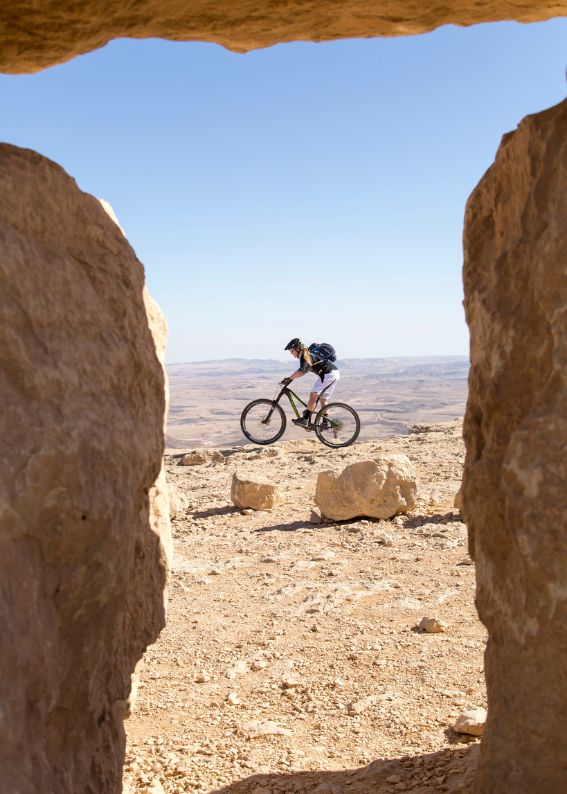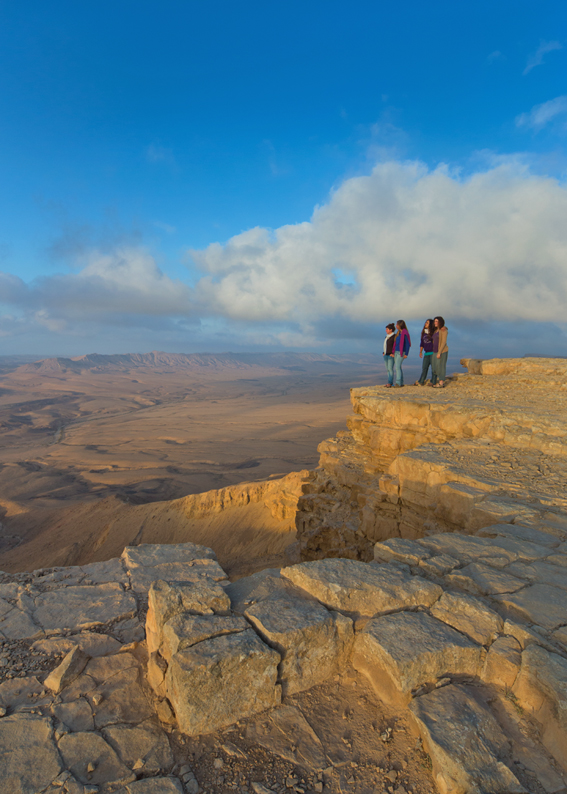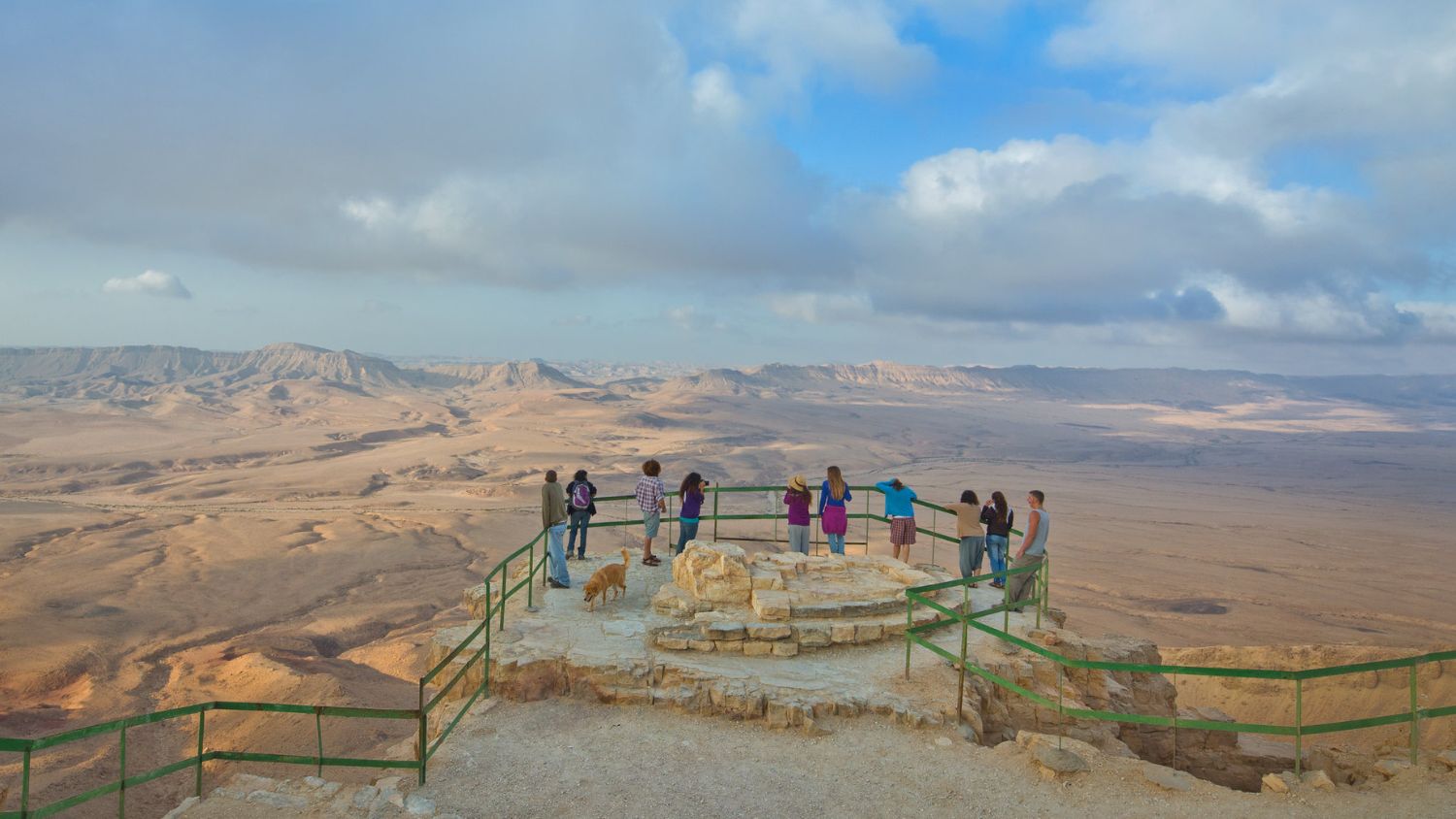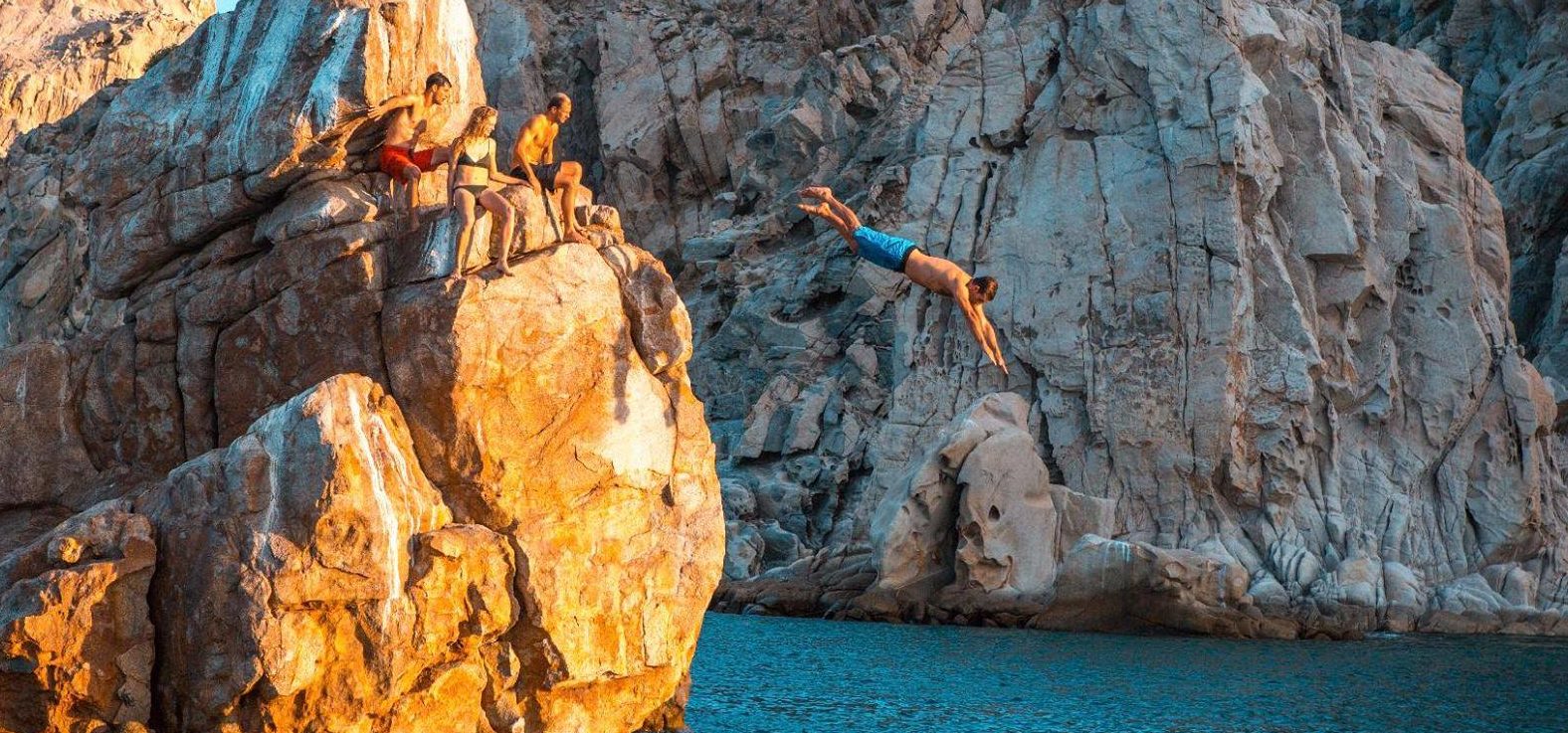From Tel Aviv to Jerusalem and beyond, Israel is where the Mediterranean meets the Middle East, but it’s the mystique of the Negev desert that is tweaking our sense for exploration now. Historically rich, the Negev is home to geological wonders, a long list of festivals and the country’s most scenic views
Miles of weather-worn sand stretch as far as the eye can see, yet there’s an oasis ahead. The nomadic Nabateans, the architects of Petra in neighbouring Jordan, had their start in the Negev, trading on their proximity to the incense routes. The indigenous Bedouin tribes still make the Negev their home, where they share their ages-old way of life with their guests. Yes, we said guests. Get a better understanding of this desert culture with a truly authentic and personal experience: book a stay in a Bedouin Hospitality Tent. Listen to the stories, share a traditional meal and then sleep under the stars. Yet, for the modern adventurer, this stretch of serenity is less than two hours from both Jerusalem and Tel Aviv.

Mountain Biker Riding in the Negev Desert. Photo by Alon Ron for the Israeli Ministry of Tourism

Watching sunrise in the Negev desert. Photo by Dafna Tal for the Israeli Ministry of Tourism.
And, contrary to its desert designation, the Negev is anything but barren. Geological formations carved by mother nature over thousands of years, may just rival the beauty of the Grand Canyon – and there’s not one, but three wondrous crater phenomena in the Negev where you can hike, be surrounded in the swirls of ochre, yellow and gold, and breathe in the air, untouched by present-day machinery. Surf the dunes on a sandboard, akin to snowboarding; rent a bike or go old school and take a camel ride and hit one of the many trails.
If you’re a foodie, get ready for delicious. Enterprising farmers and winemakers have found ways to bring water to the crops, using computerized drip irrigation systems that are a mix of science and ancestral desert magic to grow an abundance of vegetables and fruits, making it a farm-to-table experience unlike others.

Fresh hummus. Photo by Haim Yosef.

A rustic accommodation in the Negev. Photo by by Dafna Tal for the Israeli Ministry of Tourism
Vegetarians will delight in Israeli dishes rich with dates and lentils and eggplants, parsley and garlic, doused with a generous dollop of buttery olive oil and accompanied by a local wine. If it’s not enough to simply have a seat at the table, take part in the area’s well-developed agritourism by booking a farm stay. The community welcomes its visitors with open arms and there’s always a way to immerse yourself and live like a local.
After all, this is the land of the communal kibbutz farm, and the “Zimmer’s”, the Israelis’ word for a local cabin rental bed and breakfast. Once the hard work is done, reward yourself with a 5-star stay in Eilat, Israel’s resort city on the shores of the Red Sea. Snorkel, scuba dive, swim, recharge. https://www.negevtour.co.il; https://goisrael.com



